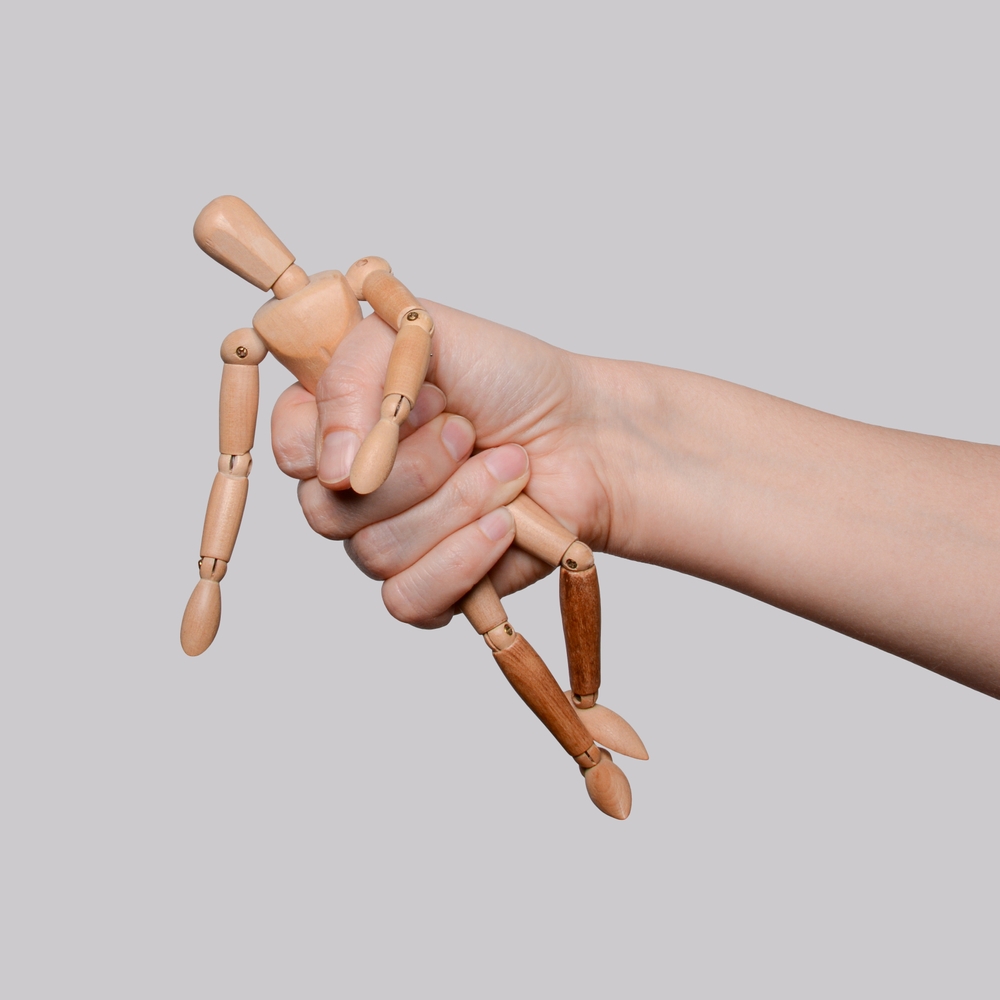When I was younger, like in my 30s, and a friend was posting way too many selfies on social media, I used to think, “What a narcissist!” Little did I know what this term meant and what a narcissistic person actually is.
I recall meeting my brother-in-law over 20 years ago. He seemed too good to be true – charming, well put together, and head-over-heels in love with my sister. Looking back, there were many red flags that something was off, but I didn’t give it much thought. I used to say, as long as my sister was happy, I had nothing to say. But what we were dealing with was a classic case of narcissism, and by the time we realized it, my sister was already too deeply involved.

What is a narcissist, and what may be the signs that a person is one?
A true narcissist refers to a person with narcissistic personality disorder (NPD). NPD is a personality disorder that causes individuals with it to believe themselves superior to others and expect to be recognized and treated as such. To meet the definition, at least five of these traits must be present:
- An inflated perception of one’s significance
- A preoccupation with fantasies of unlimited success, power, brilliance, beauty, or ideal love
- Someone who believes they’re special and unique, and that only other special or high-status people or institutions can truly understand them.
- Seeking constant validation and attention, often with a desire for excessive praise and admiration.
- Entitlement issues
- Behavior that takes advantage of others
- A lack of empathy
- Feeling jealous of others or thinking others are jealous of them
- Showing off an arrogant and haughty attitude or behavior
Let’s just say my brother-in-law checked all the above, and I won’t get into the details on how tough it can be to get out of a relationship with a narcissist, especially when you have kids together. I believe that if you are reading this article, you are probably having some doubts about your partner. However, knowing what makes a person a narcissist won’t help you make a diagnosis. Only a qualified expert can diagnose NPD after conducting a standard psychiatric evaluation. Even so, being aware of the signs of NPD can give your relationship some perspective. Here are some key indicators to watch for.

1. They were charming at first
People with NPD often come across as charming and captivating at first to draw attention and admiration. I’m not talking about normal charm, but an exaggerated, over-the-top kind. You feel like you’re pinching yourself to make sure you’re not dreaming. They constantly compliment you or say they love you within the first month. Maybe they tell you how smart you are or emphasize how well you two get along, even if you’ve just started seeing each other. But this charm usually hides underlying manipulative behaviors.
When dealing with someone who displays these traits, it’s essential to establish clear boundaries and keep your emotions in check. Getting support from friends, family, or a therapist can offer valuable insight and help you develop coping strategies.
2. They always brag about how great they are and how much success they are having
Individuals with NPD often seek validation through grandiose statements, using their achievements to elevate their self-worth and manipulate others’ perceptions. This behavior can create an imbalanced dynamic, leading to frustration and resentment in relationships.
Narcissists are also too caught up in talking about themselves to listen to you truly. If you’re unsure, try asking yourself these questions: What happens when you bring up your own experiences? Do they ask follow-up questions and show genuine interest in hearing more? Or do they turn the conversation around to make it about them?

3. They feed off your compliments
One key characteristic of Narcissistic Personality Disorder is the need to soak up compliments and praise from others. People with NPD tend to rely on outside validation to keep their self-esteem up, constantly seeking praise to confirm their sense of superiority. They might cleverly steer conversations to get the admiration they want, often overlooking others’ feelings along the way. This craving for validation can throw off the balance in relationships, where the narcissist’s self-worth depends on what others think.
4. They lack empathy
One thing that’s stuck with me about my brother-in-law is that he has a deep-seated dislike for all animals. I’ve always struggled to understand people who dislike animals in general. I get it if someone doesn’t want a pet – they’re a lot of responsibility and not everyone can handle that. But he seems to have a strong dislike for animals without any clear reason that I’m aware of.
Individuals with NPD often struggle to understand or acknowledge the emotions and needs of others, viewing relationships solely from their own perspective. This emotional insensitivity can lead them to act dismissively or hurtfully, putting their own desires above the well-being of those around them. Their inability to empathize can make relationships feel isolating and frustrating, leaving you feeling unappreciated and unheard.
5. They don’t have any (or many) long-term friends
People with NPD often find it hard to keep friendships because they’re self-centered and can’t really put themselves in someone else’s shoes. Their need for constant praise and validation can push others away, as they tend to put their own needs before their friends’. On top of that, their manipulative behaviors, like gaslighting or belittling, can create a toxic environment that drives people away. Friendships may start strong, but they usually fall apart when the narcissist’s true nature comes out. In the end, their inability to connect with others on a real level and keep relationships balanced leaves them with very few close friends, which can lead to feeling isolated.

6. They gaslight you
Gaslighting can be a deeply troubling experience, as it involves manipulation and emotional abuse, often associated with narcissistic behavior. Those with NPD might engage in blatant lies, unfairly accuse others, twist the truth, and ultimately reshape their reality, especially when they feel challenged or threatened by authority.
By distorting reality and denying your feelings or experiences, they create confusion and self-doubt. This helps them shift the blame away from themselves and reinforce their own narrative as a victim or misunderstood person. Gaslighting also allows them to deflect criticism and keep control in the relationship, keeping you emotionally dependent. Over time, this constant manipulation wears down your confidence and sense of reality, making it harder for you to trust your own perceptions and feelings, and ultimately trapping you in a cycle of emotional abuse.
7. They think they’re right about everything, and never apologize
Individuals with narcissistic personality disorder are often viewed as arrogant and exhibiting haughty behavior or attitudes. As a result, trying to argue with a narcissist can feel like an impossible task. This mindset comes from their desire for validation and admiration, which leads them to dismiss any criticism or differing opinions. Acknowledging fault or apologizing would challenge their self-image, so they avoid taking responsibility to maintain their illusion of perfection. This unwillingness to apologize can cause a lot of tension in relationships, as it blocks genuine communication and prevents conflicts from being resolved.
If you’re in a relationship with someone who has NPD, you’ve probably already been through a lot. Dealing with someone who constantly criticizes, belittles, gaslights, and doesn’t commit to you can be emotionally draining. What I’ve learned, and what helped my sister break free, is having a strong support system. Friends and family who are there for you remind you what’s real and what’s not. For more helpful advice on dealing with someone who has NPD, I suggest checking out If Only I’d Known by Chelsey Brooke Cole.
This article isn’t meant to diagnose your partner’s issues. Instead, it outlines unacceptable behaviors and reactions within a loving, equal partnership. Engaging in one or more of these narcissistic behaviors doesn’t automatically make your partner a narcissist, but it’s a good reason to reassess whether you’re truly thriving in your relationship.
Read next: Discover the Joys of Being Single: 10 Key Benefits.